Annual and FAN Award
Each year one outstanding scientific paper or PhD thesis is honored with the annual award of CHF 5,000. The FAN Award also recognizes innovative research and the outstanding achievements of junior researchers and brings them more into the public eye.
In the following, we present individual award winners of our Faculty.
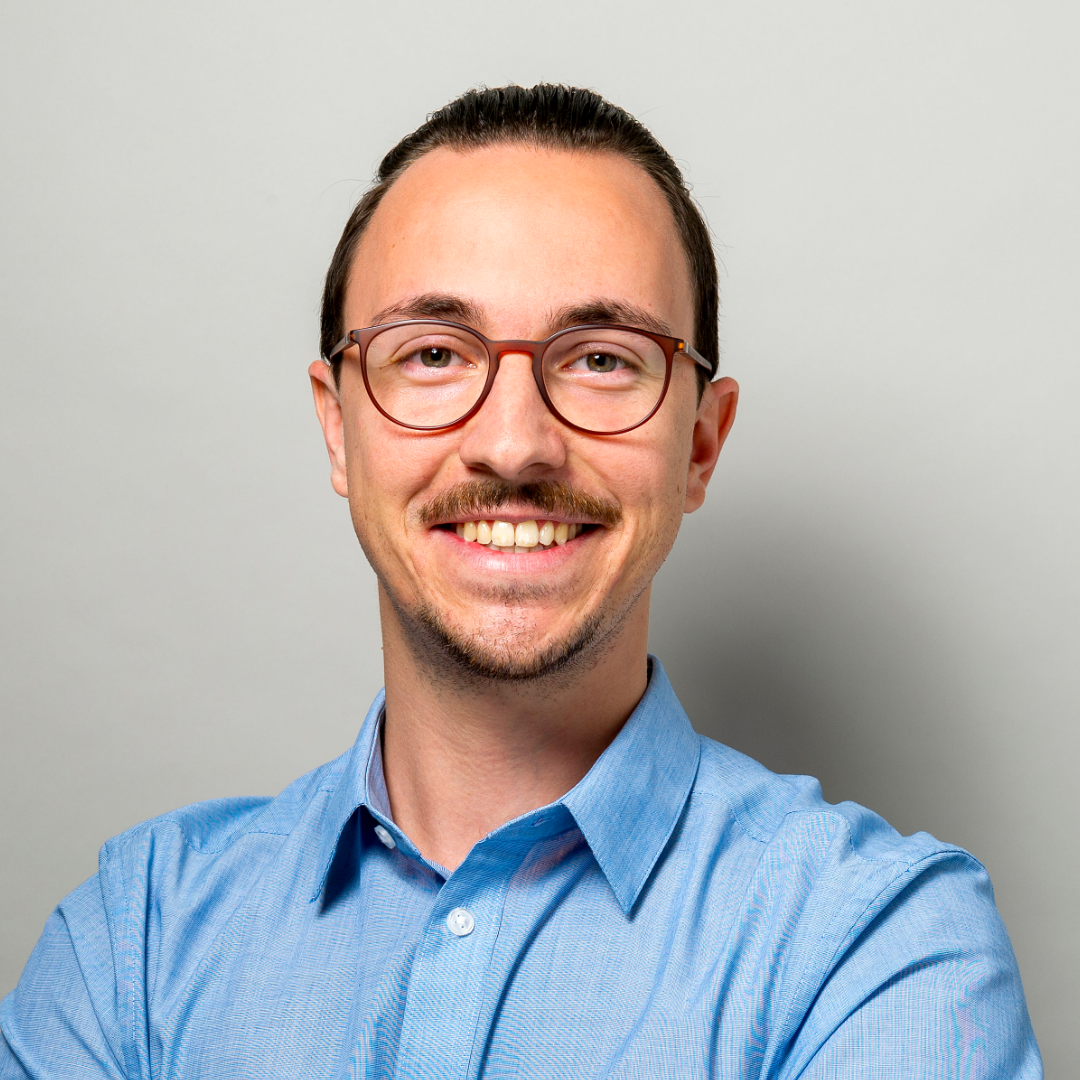
Niklas Bürgi
Annual Award 2025 for PhD thesis
"Am I Thinking What You Are Thinking? A Neurocomputational Account of Adaptive Mentalization and Its Application in Autism"
Read the laudatio of Niklas Bürig's PhD thesis at the Faculty of Arts and Social Sciences. His research is at the intersection of neuroeconomics and psychology.
Laudatio
In his dissertation, entitled 'Am I Thinking What You Are Thinking? – A Neurocomputational Account of Adaptive Mentalization and Its Application in Autism', Niklas Bürgi examined the human ability to empathize with others and predict their behavior. Using the game 'rock-paper-scissors', mathematical models and brain activity measurements, he demonstrated that people adapt their strategies flexibly and that these processes are reflected in specific areas of the brain. He also showed that these processes are significantly slower in people with autism. His work improves our understanding of interpersonal interaction and helps identify difficulties earlier.
Summary
Understanding what others think and feel – often called mentalizing – is key to social life. Although scientists have begun to map the brain areas that are involved, their exact functions are still not fully understood, and many studies rely on artificial tasks that do not reflect real social interactions. The PhD thesis by Niklas Bürgi studied how people adapt to others’ changing thoughts, by combining Rock-Paper-Scissors with mathematical models of the underlying reasoning process. Across 600 participants, including autistic individuals, he identified brain patterns linked to this specific skill. The reduced presence of these patterns in individuals with autism helps to explain their difficulties during social interactions. These findings help us to better understand social thinking and how to evaluate it.
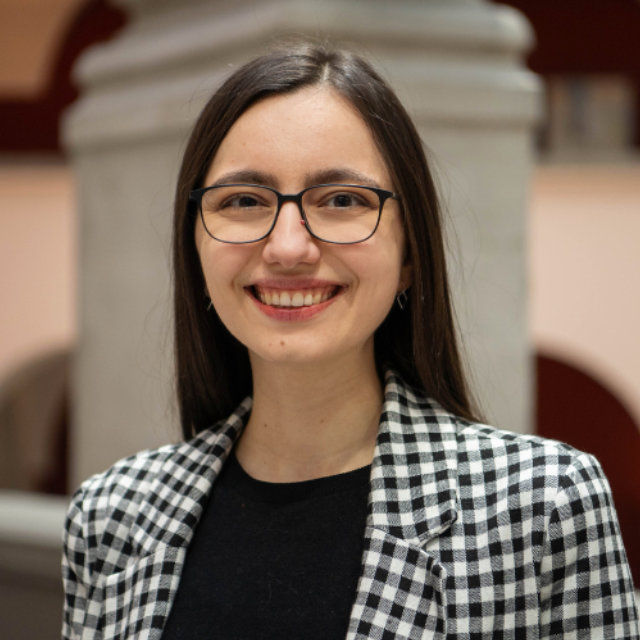
Stefania Ionescu
FAN Award 2025 for PhD thesis
"Society as a Stakeholder: Understanding the Societal Impact of Systems Allocating Visibility Algorithmically"
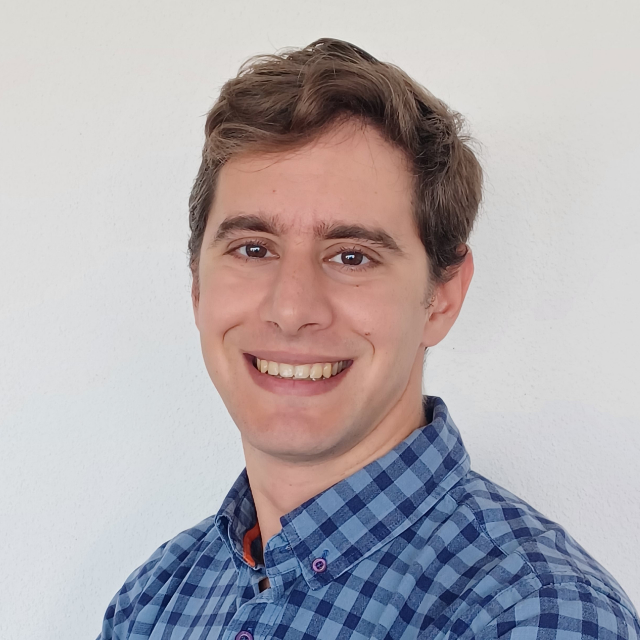
Daniel Gehrig
Annual Award 2024 for PhD thesis
"Efficient, Data-Driven Perception with Event Cameras"
Read the laudatio of Daniel Gehrig's PhD thesis at the Department of Informatics.
Laudatio
Daniel Gehrig's dissertation “Efficient, Data-Driven Perception with Event Cameras” explores the potential of event cameras to quickly and reliably recognize objects such as road users. To this end, he developed new algorithms that are specially tailored to these cameras and learn from examples. In the future, drivers can be supported and their safety increased, particularly in dangerous situations.
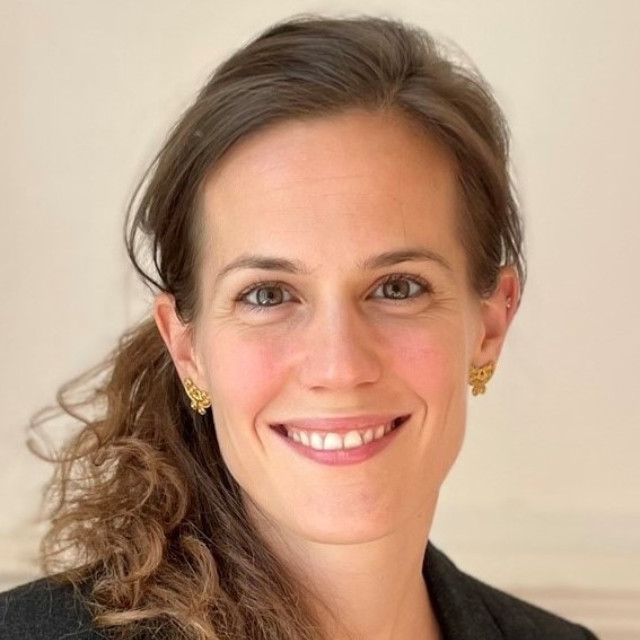
Ursina Schaede
Annual Award 2023 for PhD thesis
"Quota vs Quality? Long-Term Gains from an Unusual Gender Quota"
Read the interview with Ursina Schaede about her PhD thesis at the Department of Economics.
To the interview
What is your thesis about?
I evaluate equity-efficiency trade-offs from admissions quotas by examining effects on output once beneficiaries start producing in the relevant industry. In particular, I document the impact of abolishing a 40% quota for male primary school teachers on their pupils’ long-run outcomes. The quota had advantaged academically lower-scoring male university applicants, and its removal cut the share of men among new teachers by half. We combine this reform with the timing of union-mandated teacher retirements to isolate quasi-random variation in the local share of male quota teachers.
What is the main result?
Using comprehensive register data, I find that pupils exposed to a higher share of male quota teachers during primary school transition more smoothly to post-compulsory education and have higher educational attainment and labor force attachment at age 25. Pupils of both genders benefit similarly from exposure to male quota teachers. Evidence suggests that the quota improved the allocation of talent by mending imperfections in the unconstrained selection process.
What has inspired you to choose this topic?
I think we still have a long way to go in terms of equality of opportunity for different groups in terms of access to education and the labor market more broadly. Studying exogenous policy changes that change the composition of an occupation helps us to understand the economic cost of losing talent from unequal access. While this quota was for men, the results apply more generally to any setting in which selection criteria discount an under-represented group's talents.
What are you planning to do with the prize money?
The prize money was very helpful to pay for trips to Switzerland. Both to work with co-authors and see friends and family during my Post-Doc year in Boston. Thank you!
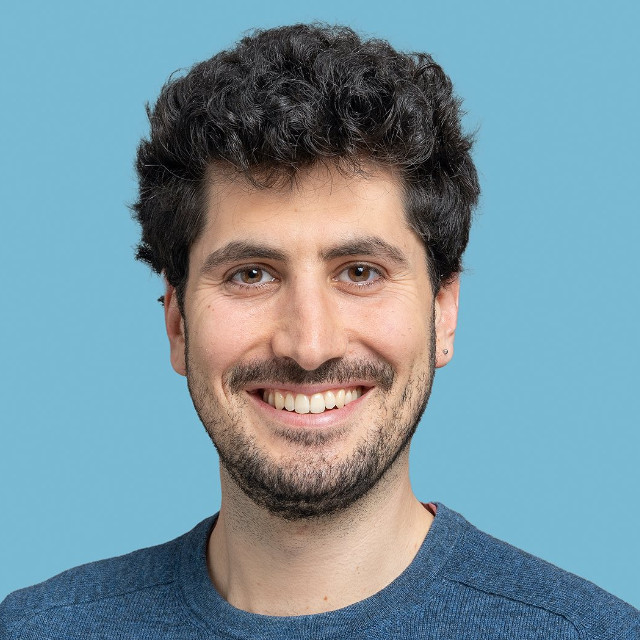
Emilio Dal Re
FAN Award 2023 for PhD thesis
"Unintended Consequences of Organic Agriculture: Lessons from the Coffee Sector"
Read the interview with Emilio Dal Re about his PhD thesis at the Department of Economics.
To the interview
What is your thesis about?
Why are consumers willing to pay a higher price for organic products? One surprising reason is the belief that organic certifications improve farmers’ living conditions, especially in low-income countries. In my PhD thesis I challenge this hypothesis by focusing on the coffee sector in Central America. I combine a range of statistical causal-inference models with more innovative tools used in remote sensing and computer science to analyze the economic and social impact of introducing organic farming certifications on the agricultural sector and the local labor market.
What is the main result?
Surprisingly, the results show that, due to the introduction of organic certifications, many smallholder self-employed coffee farmers abandoned their farms. Moreover, villages more exposed to organic certifications experienced a drop in income and employment. Part of the effect seems also to exacerbate an already existing problem in the region: the international migration crisis. After traveling to Guatemala, I discovered that the explanation was hidden in a microscopic fungus known as coffee leaf rust. An unexpected outbreak of this coffee-specific infectious disease in 2013 affected the less-protected organic producers more than conventional ones, causing major crop failures in organic coffee plantations.
What has inspired you to choose this topic?
I ended up working on this topic by chance. I was in a field trip in Guatemala for a different research project on climate change adaptation in rural areas, when I realised how more salient, yet related, the issue of plant disease epidemics was. My innate curiosity and a subtle desire to be proven wrong did the rest. As an environmental and development economist I am also trained to imagine a world where policy actors are not forced to choose between environmental protection and economic growth. This study started with that very goal in mind and showed that sometimes good intentions, if not properly executed, can fall into that trade-off.
What are you planning to do with the prize money?
After spending years studying climate change mitigation policies, I decided that it was time for me to act upon them by combining my market-oriented economic knowledge with the great engineering minds coming out of ETH. So, upon finishing my PhD, I founded with some friends a Zurich-based start-up called Unbound Potential. Our mission is to develop one of the still missing cornerstones of the energy transition to renewables: a truly scalable long-duration energy storage system. I will put the prize money as capital of our company and help bringing our solution to the market. We can say that this award is the very first financial investment in Unbound Potential.
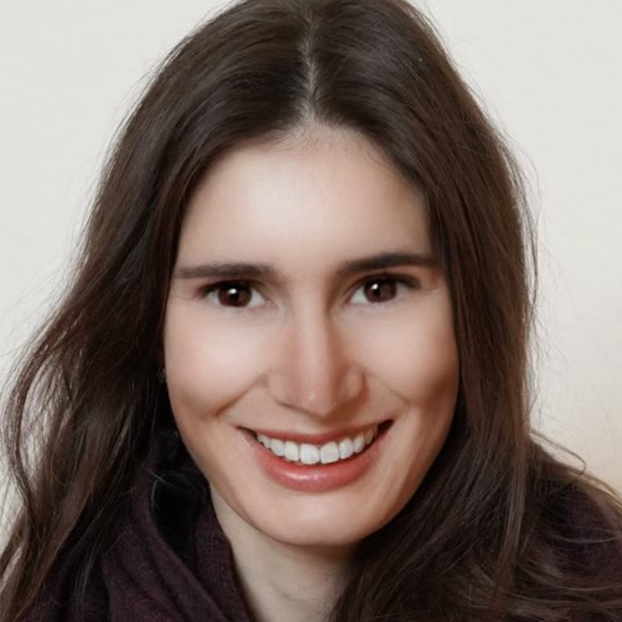
Tania Weinfurtner
Annual Award 2022 for PhD thesis
"The role of space in organising"
Read the interview with Tania Weinfurtner about her PhD thesis at the Department of Business Administration.
To the interview
What is your thesis about?
My thesis examines the role of physical and social spaces in organisational processes, such as coordination and strategy development
What is the main result?
My dissertation contributes to establishing a spatial perspective in organisation studies. Specifically, my conceptual and empirical examinations of the role of space in organising highlight the relevance of physical space as coordination mechanism and show how different configurations of social space shape the development of strategic issues.
What has inspired you to choose this topic?
During my studies at different universities I recognized that different spatial setups, such as a close versus spread out campus but also the location and design of cafeterias and libraries, made a difference for student interaction and learning. When I realized that the literature does not sufficiently discuss such implications, I was intrigued to investigate this topic myself.
What are you planning to do with the prize money?
I’m very grateful for this price. I am expecting a baby so the money is very welcome to spoil her!
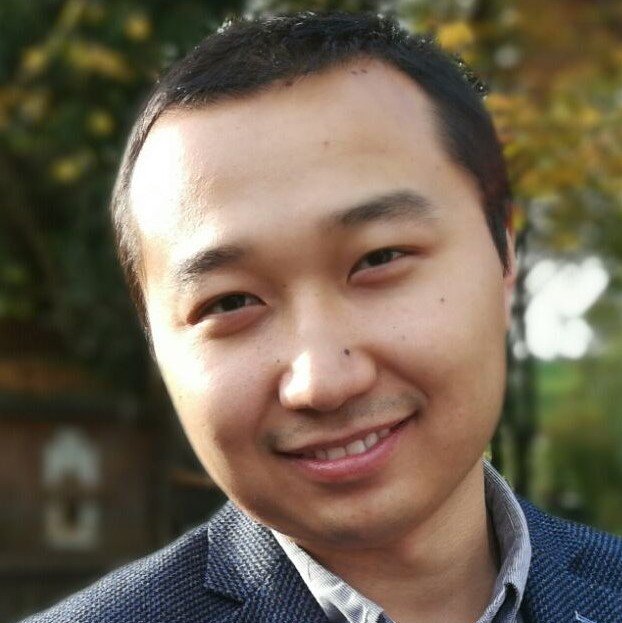
Zichao Zhang
Annual Award 2021 for PhD thesis
"Active Robot Vision: From State Estimation to Motion Planning"
Read the Interview with Zichao Zhang about his PhD thesis at the Department of Informatics.
To the interview
What is your thesis about?
My thesis is about exploiting the active nature of mobile robots to improve the robustness of vision algorithms in challenging situations, such as difficult lighting conditions and textureless environments.
What is the main result?
The thesis demonstrates that the robustness of vision algorithms for mobile robots can be greatly improved by making the robot active in various aspects, from changing the camera parameters to moving to better viewpoints. A set of algorithms are designed and tested. In essence, more informative sensor data can be collected by an active agent, resulting in better performance.
What has inspired you to choose this topic?
My research started from studying visual simultaneously localization and mapping (SLAM), which usually focuses on information processing rather than collection. When applying visual SLAM to actual robots, I was fascinated by the possibilities and challenges of making use of the active nature of mobile robots, which inspired my research in active robot vision.
What are you planning to do with the CHF 5000?
I do not have a plan yet. Maybe I would use it for traveling when things get back to normal.
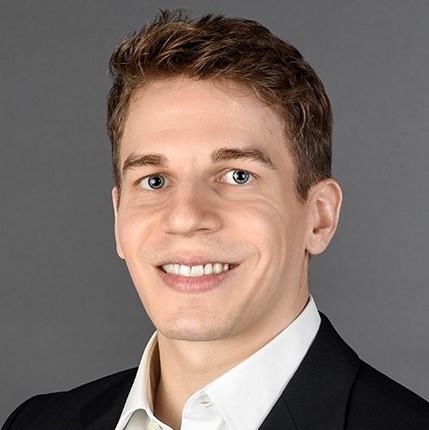.jpg)
Robin Schnider
Annual Award 2020 for PhD thesis
"Macro-, Meso-, and Micro-Level Perspectives on Corporate Social Responsibility and Pro-Social Behavior"
Read the interview with Robin Schnider about his PhD thesis at the Department of Business Administration.
To the interview (german only)
Worum geht es in Ihrer Arbeit?
Gerade im Angesicht globaler Herausforderungen wie dem Klimawandel, Ungleichheit oder Armut, fordern Gesellschaften immer stärker von Unternehmen, soziale Verantwortung über gesetzliche Bestimmungen hinaus zu übernehmen und sich für das Allgemeinwohl zu engagieren.
In meiner Arbeit habe ich unter anderem untersucht, wie die gesellschaftliche Verantwortung von Unternehmen im öffentlichen Dialog bestimmt werden kann und wie die Meinungsbildung durch solche Dialoge über soziale Medien beeinflusst wird.
Im Rahmen eines der Experimente wurden Teilnehmer gebeten, sich ein YouTube-Video einer Diskussion zwischen Experten und anderen Studienteilnehmern zum Thema globaler Steuervermeidung durch Unternehmen anzuschauen und die Legitimität solcher Praktiken zu beurteilen. In der Kommentarsektion unter dem Video befanden sich vorbereitete Kommentare, die sich entweder positiv oder negativ zur Steuervermeidung äusserten. Es hat sich gezeigt, dass unabhängig von den per Video präsentierten Inhalten (z.B. befürwortender vs. kritischer Experte), sich das Urteil der Kommentare von anonymen Nutzern auf Social Media bei der Meinungsbildung durchsetzt. Das besorgniserregende dabei ist, dass dieser Einfluss unbewusst zu wirken scheint. So schätzen die Teilnehmer selber den Einfluss der Kommentare im Vergleich zu den anderen Inhalten am geringsten ein. Diese Ergebnisse rufen zu mehr Vorsicht und einer bewussteren Nutzung von sozialen Medien auf.
Was hat Sie zu dem Thema motiviert?
Als ich mit meinem Studium der Wirtschaftswissenschaften begonnen habe, hatte ich die Möglichkeit das World Resources Forum 2009 in Davos zu besuchen und hörte dort einen Vortrag von Dennis L. Meadows, Ökonom und Mitglied des Club of Rome, der aus den Einsichten seines Buches «Limits to Growth» erzählte. Recht eindrücklich machte er deutlich, wie wir mit exponentiellem Wirtschaftswachstum und überbordenden Ressourcenverbrauch die Erde bereits an den Rand eines Kollapses gefahren haben und Probleme wie der Klimawandel nur eine der Konsequenzen davon seien. Eine gewisse Endzeitstimmung machte sich im Saal bemerkbar und während meines Studiums suchte ich nach möglichen Antworten darauf, wie die Wirtschaft solche globale Probleme vorbeugen könnte. Ich bin auf einige interessante Ideen gestossen und wollte diese in meiner Forschung weiter vertiefen.
Was haben Sie mit den 5000 Franken vor?
Das Preisgeld und die Auswirkungen der gegenwärtigen Situation rund um COVID-19 auf den Aktienmarkt habe ich als Ansporn dafür genommen, mich genauer mit Investitionsmöglichkeiten zu beschäftigen. Das Geld habe ich inzwischen an der Börse angelegt. Ich bin jetzt schon dankbar für die neuen Erfahrungen, die ich dadurch gemacht habe. Vielleicht kann ich mir in Zukunft etwas davon leisten, ansonsten bin ich wenigstens um einige Erfahrungen reicher.
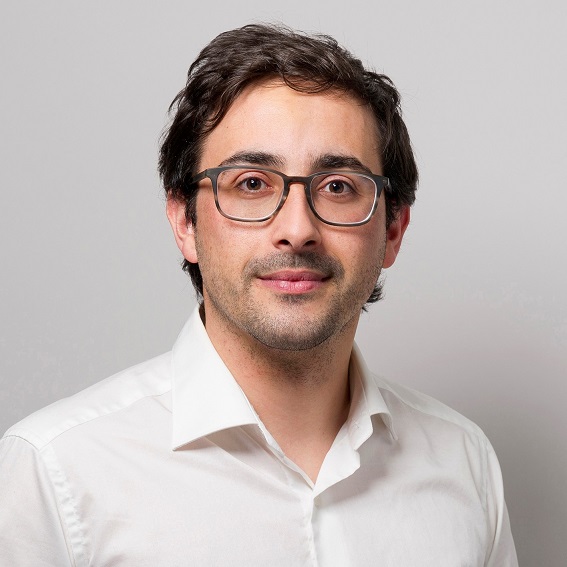
Bruno Caprettini
Fan Award 2018 for PhD thesis
"Structural Change and Agricultural Technology"
Read the interview with Bruno Caprettini about his PhD thesis at the Department of Economics.
To the interview (German only)
Gemeinsam mit zwei Mitautoren ist Bruno Caprettini einer zentralen Frage der Ökonomie nachgegangen: Wie industrialisieren Länder? Zum einen ging es in seiner Studie um den strukturellen Wandel in Brasilien. Die Einführung von gentechnisch verändertem Soja-Saatgut im Jahre 2001 veränderte die Produktionsbedingungen in der Landwirtschaft stark: Wo es die Bodenbeschaffenheit zuliess, konnte das neue Saatgut verwendet werden, was den Arbeitsaufwand für Saat und Ernte deutlich verringerte.
Die Forschenden verglichen verschiedene Regionen Brasiliens. Dabei zeigte sich: Wurde in einer Gegend gentechnisch verändertes Soja angebaut, waren dort weniger Arbeitskräfte in der Landwirtschaft nötig. In der Folge suchten mehr Personen in der Industrie Arbeit. Dies ging langfristig mit einer höheren ökonomischen Wertschöpfung einher.
Ähnliches zeigt die Analyse historischer Daten in England um 1800. Im Video erklärt er, warum Innovationen in der Landwirtschaft den Wandel von einer Agrar- zu einer Industriewirtschaft beschleunigen können.
Dr. Timo Mennle
Mercator Award 2017 for PhD thesis
"Incentives and Efficiency in Markets without Money"
Read the interview with Timo Mennle about his PhD thesis at the Department of Informatics.
To the interview (German only)
Märkte ohne Geld
Es gibt Dinge, die kann man nicht kaufen: Plätze an öffentlichen Schulen etwa oder Zugang zu sozial gefördertem Wohnraum. Solchen «Märkten ohne Geld» hat Timo Mennle seine Dissertation am Institut für Informatik gewidmet. Er ging der Frage nach, wie sich Güter auf solchen Märkten sinnvoll verteilen lassen, wenn Geld aus moralischen oder ethischen Gründen keine Rolle spielen darf.
Wenn beispielsweise in einer Stadt 1000 angehende Gymnasiasten auf zehn Gymnasien verteilt werden müssen, widerspricht es unsere moralischen Vorstellungen, dass Eltern mit genügend Geld den jeweiligen Wunschplatz für ihren Sohn oder ihre Tochter kaufen können. Städte und Gemeinden setzen deshalb unterschiedliche Vergabeverfahren ein, um die Präferenzen der Eltern zu ermitteln und die Plätze zu verteilen.
Je nach Verfahren besteht allerdings die Gefahr, dass einige Teilnehmer sich durch unwahre Angaben einen Vorteil verschaffen können – etwa indem sie ihre Wertschätzung für ihre zweite Wahl übertreiben. «Die große Herausforderung von «Märkten ohne Geld» besteht in der mathematisch beweisbaren Tatsache, dass es kein Vergabeverfahren gibt, welches hohe ökonomische Effizienz und Fairness sicherstellen und gleichzeitig verhindern kann, dass sich Teilnehmer durch unwahre Angaben einen Vorteil verschaffen können», sagt Timo Mennle.
In seiner Dissertation hat er diesen Zielkonflikt untersucht und einen Indikator entwickelt, mit dem sich beschreiben lässt, wie verwundbar unterschiedliche Vergabeverfahren gegenüber strategischen Lügen durch Teilnehmer sind. Darüber hinaus hat Mennle in seiner Arbeit aufgezeigt, wie sich die Regeln in «Märkten ohne Geld» in Zukunft so umbauen lassen, dass mehr Teilnehmer die Güter bekommen, die sie wirklich wollen.

Dr. Mirjam Rinawi
Annual Award 2017 for PhD thesis
In her PhD Thesis, the annual award winner used new econometric methods to investigate the returns to apprenticeship training.
Read the interview with Mirjam Rinawi about her PhD thesis at the Department of Business Administration.
To the interview (German only)
Für ihre Dissertation am Institut für Betriebswirtschaftslehre «Returns to Vocational Education and Training: Retention, Mobility, and Wages» wurde Dr. Miriam Rinawi von der Universität Zürich mit dem Jahrespreis 2017 ausgezeichnet. Frau Rinawi untersucht in ihrer Dissertation mithilfe neuer ökonometrischer Methoden die Erträge der Lehrlingsausbildung. Sie zeigt, dass ein Lehrabschluss sehr gute Erträge ermöglicht und eine hohe Mobilität sowie technologische Anpassungsfähigkeit im gesamten Erwerbsleben eröffnet. Sie findet ausserdem, dass sich Investitionen in die Lehrlingsausbildung auch für Ausbildungsbetriebe lohnen.
